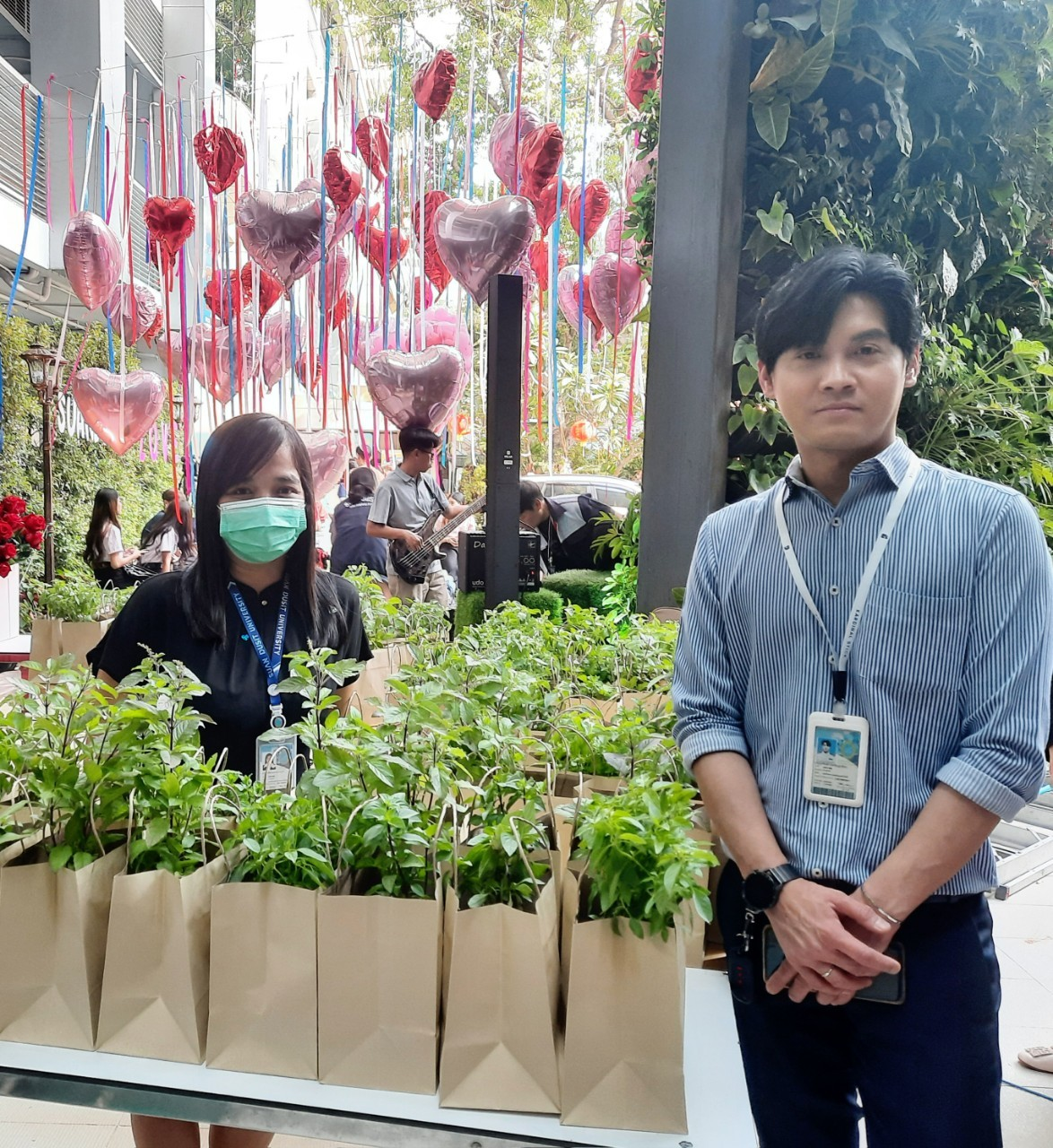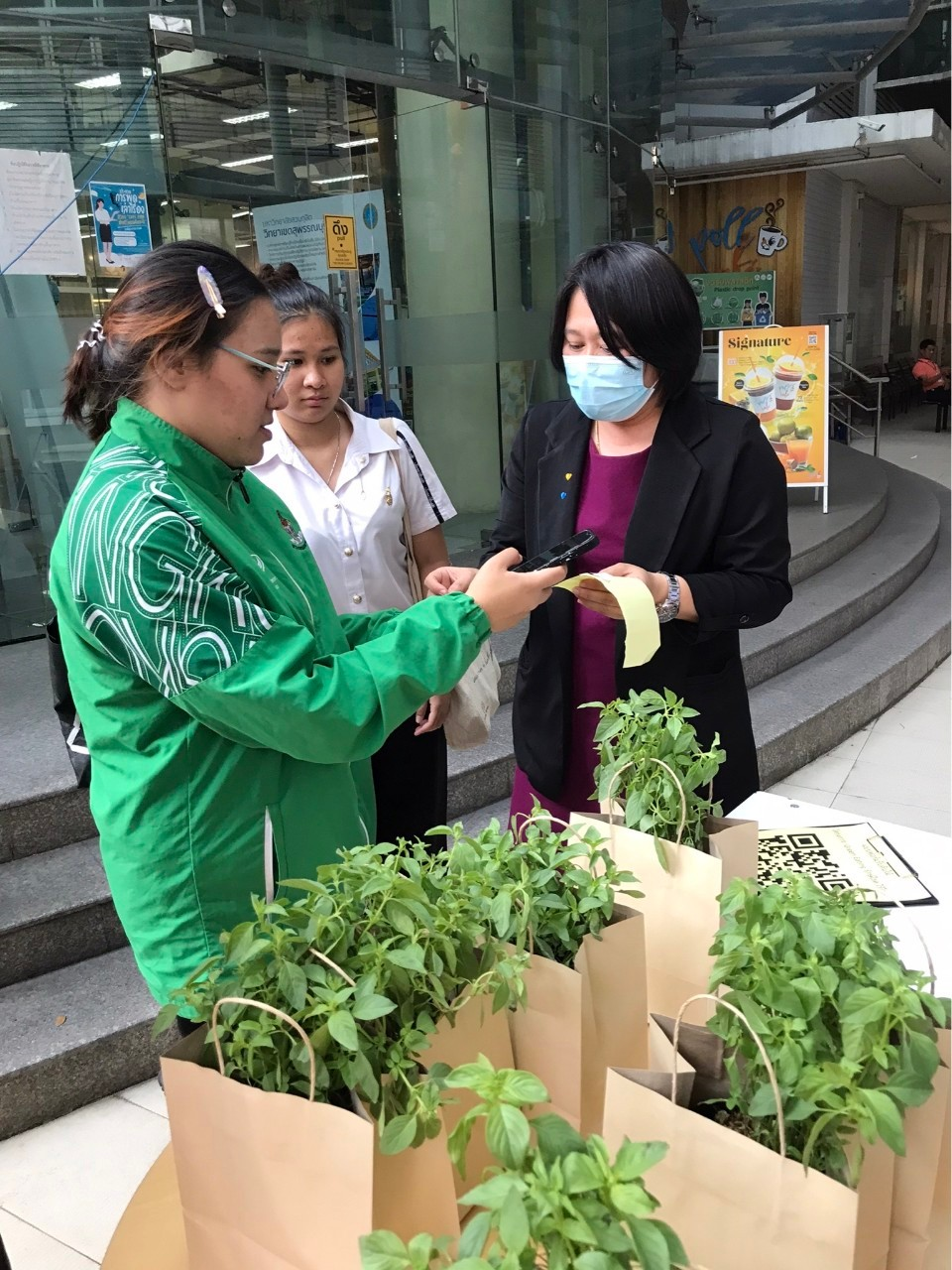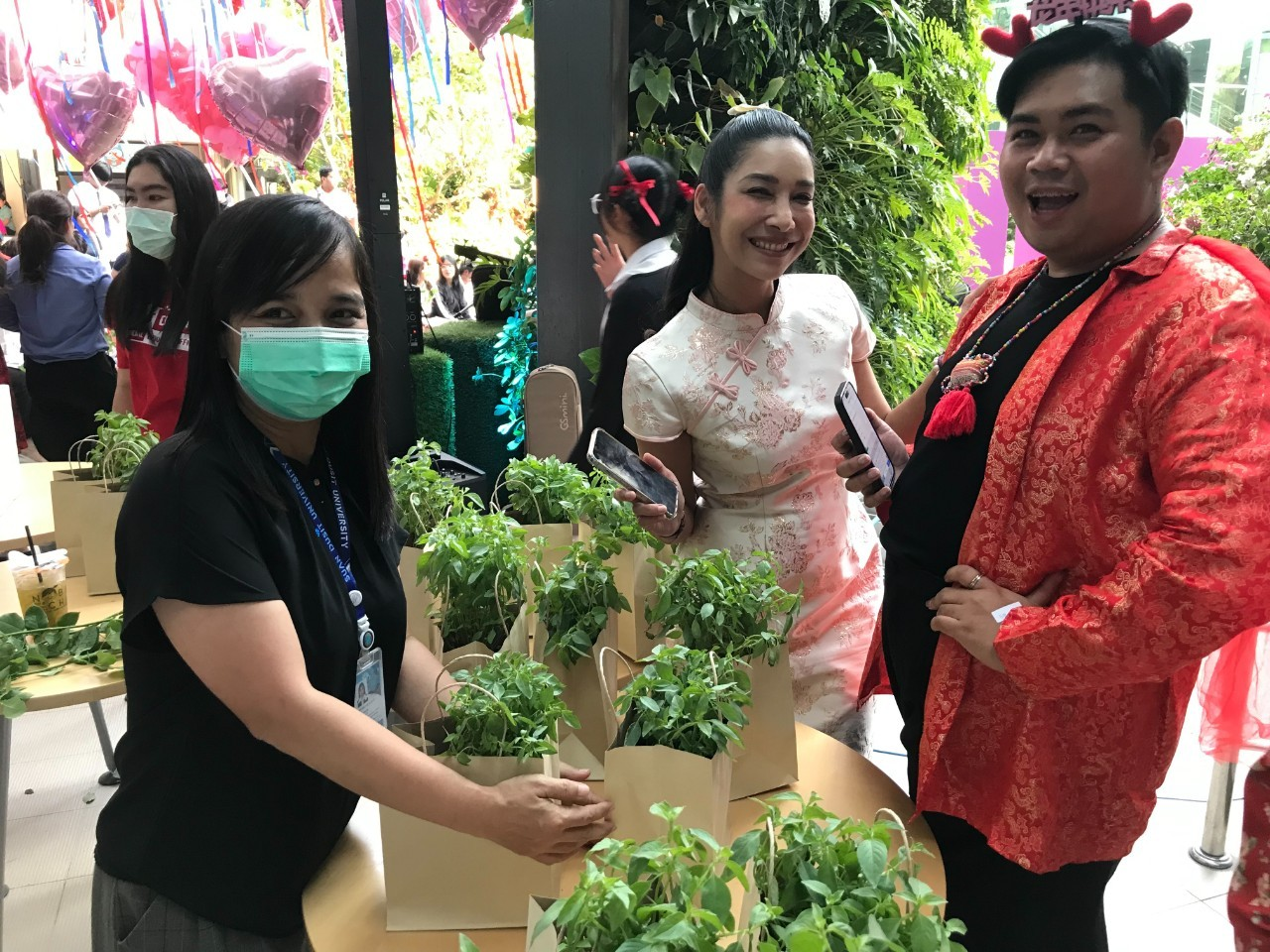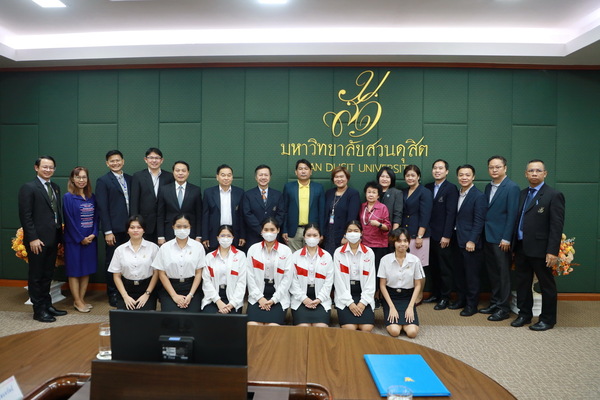
In an era when the world is facing a global food crisis, growing levels of food waste, and an alarming rise in non-communicable diseases (NCDs) such as diabetes, hypertension, and obesity, the way we eat is no longer just a matter of satiety. It is deeply intertwined with nutrition security, public health, environmental sustainability, and economic resilience. These challenges highlight the urgent need for institutions of higher education to play a leading role in reshaping dietary habits and building sustainable food systems.
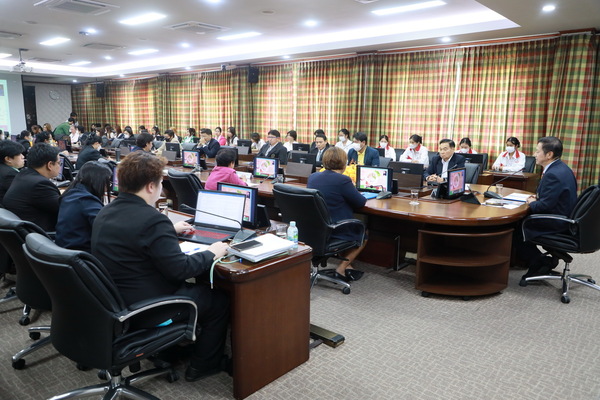
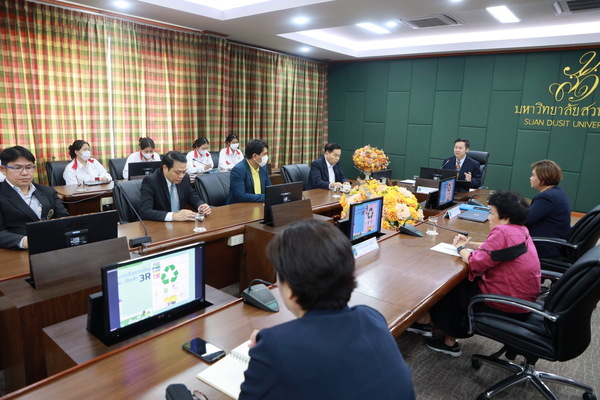
Recognizing this responsibility, Suan Dusit University, through its Environmental Center at the Faculty of Science and Technology, initiated the project “Sustainable Eating: Eat Well, Waste Less”. The project was designed to raise awareness, encourage behavioral change, and promote responsible food consumption that contributes to better health, reduced waste, and lower greenhouse gas emissions. It directly supports SDG 3 (Good Health and Well-Being), SDG 12 (Responsible Consumption and Production), and SDG 13 (Climate Action).
The project gained overwhelming participation, engaging more than 703 participants in workshops and training sessions—over three times the original target. Surveys were conducted with 340 staff members and 331 students (a total of 671 respondents) in collaboration with Suan Dusit Poll, ensuring robust and reliable data. The results revealed significant behavioral shifts: 47.39% reported buying only as much food as they could finish, while 44.71% chose meals they were confident of consuming entirely. These figures provide quantitative evidence that the program fostered measurable behavioral change towards more sustainable and responsible consumption.
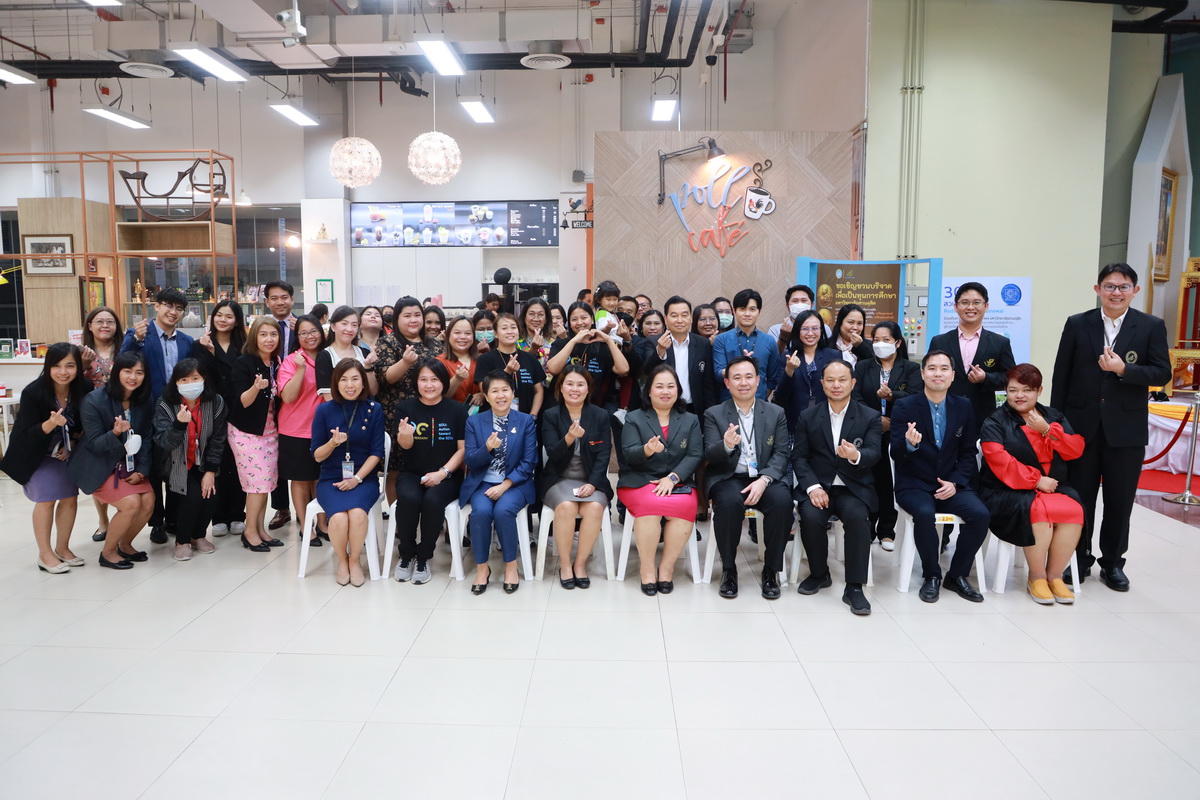
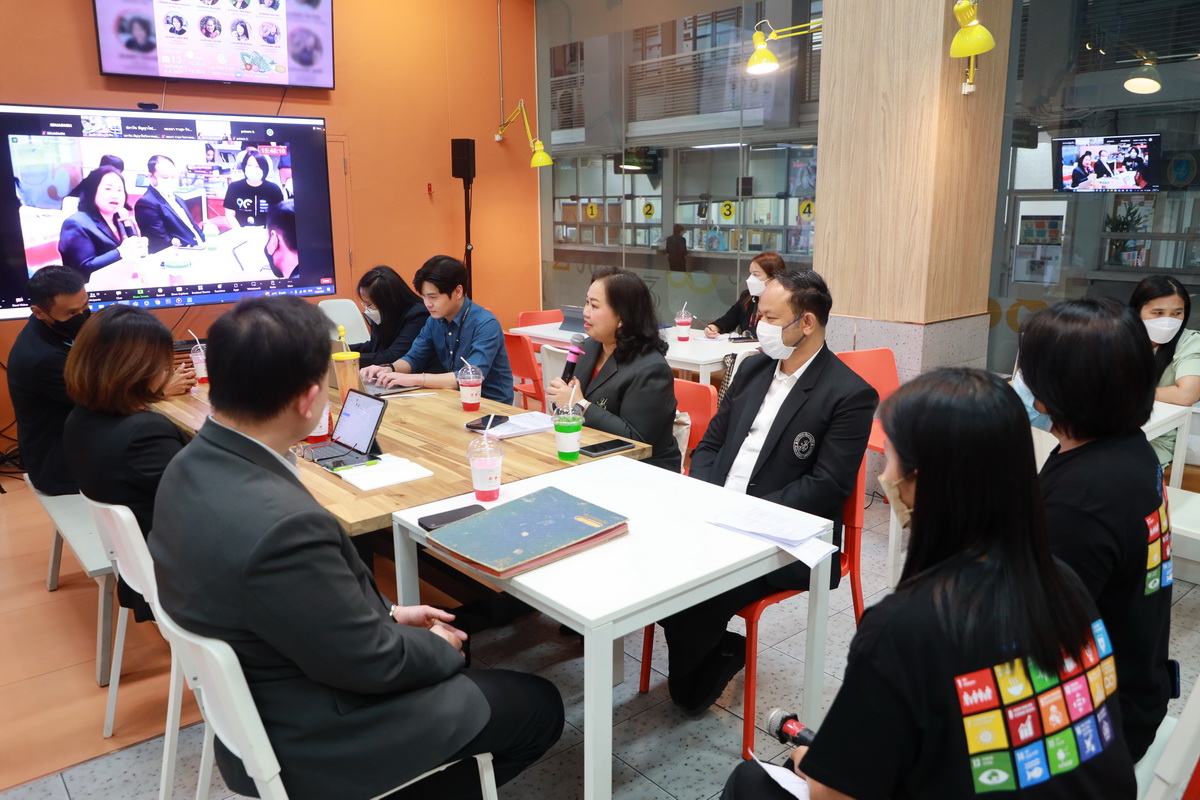
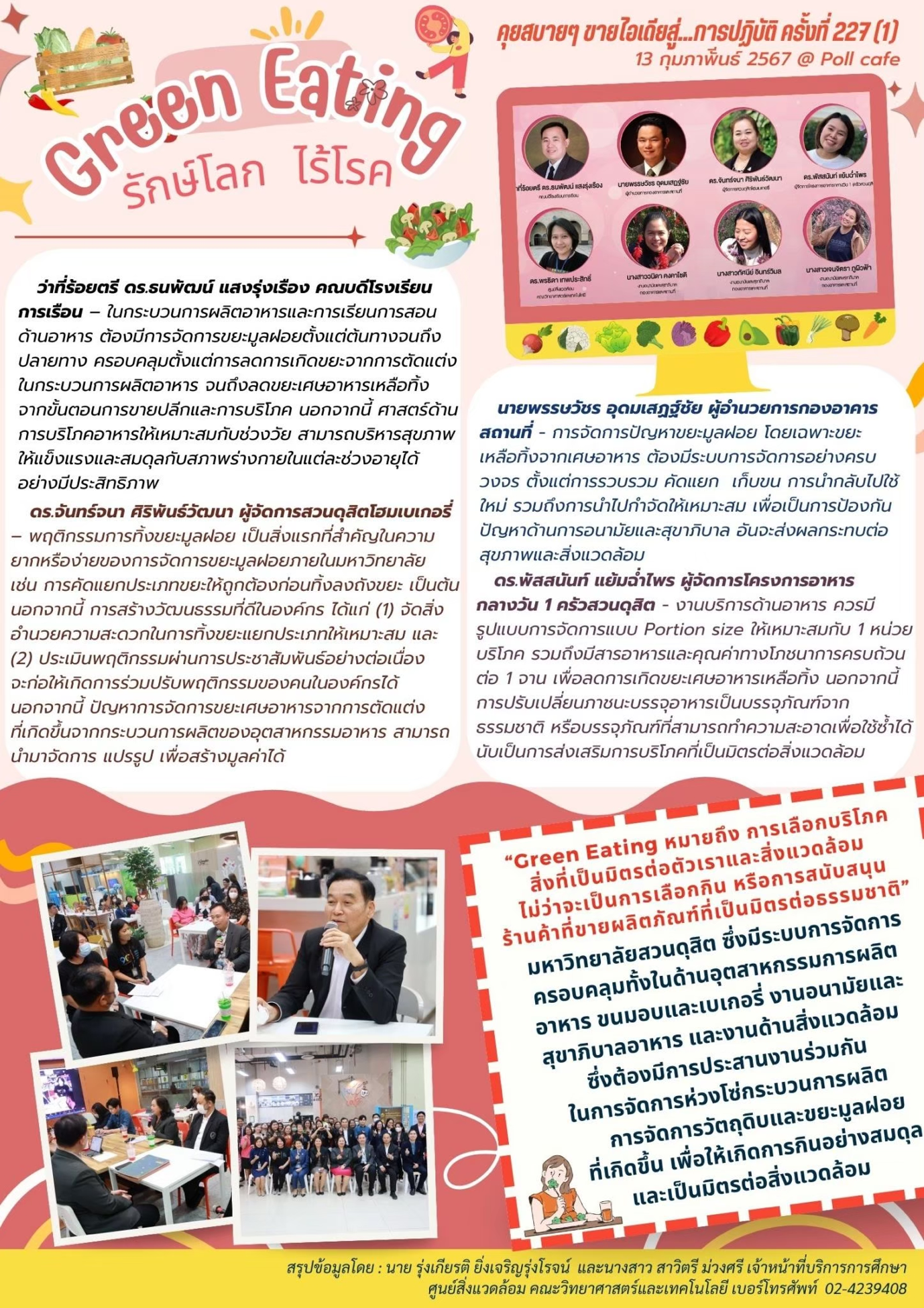
Beyond the numbers, the project created profound qualitative impacts. Participants reported that they became more mindful of how their dietary habits affect both their health and the environment. Initiatives such as “Green Eating: Healthy and Waste-Free” and the distribution of home-grown vegetable seedlings provided practical tools to encourage sustainable lifestyles. Many participants began growing their own vegetables or adjusting their food purchasing habits, demonstrating tangible progress in food waste reduction and carbon footprint mitigation. This reflects a broader development of climate awareness and individual responsibility in contributing to greenhouse gas emissions reduction.
The outcomes of the project can be viewed in three dimensions. First, in terms of health (SDG 3), the initiative encouraged healthier eating patterns that can reduce the risk of NCDs and improve overall well-being. Second, in terms of sustainable consumption and production (SDG 12), the project established a reliable database on food consumption and waste, providing evidence-based insights to inform future university policies on sustainable food management. Third, in terms of climate action (SDG 13), by reducing food waste the project directly contributed to lowering carbon emissions associated with waste disposal and food overproduction.
In conclusion, the “Sustainable Eating” project serves as a best-practice example of how higher education can integrate health promotion, responsible consumption, and climate action into one holistic program. With both quantitative evidence and qualitative transformation, Suan Dusit University demonstrates its commitment to advancing the UN Sustainable Development Goals and building a healthier, more sustainable society where food choices are aligned with the well-being of people and the planet.
